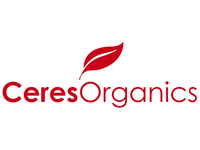If the pandemic has had any positive impact at all, it is this: the coronavirus has encouraged a strong awareness amongst consumers of the precious importance of human health and wellbeing.
While consumer trends have been edging towards greater demand for organic products for a long time now – alongside growing support for consumer action to heal the earth’s climate and bring about greater and more ethical progress in society – it’s really Covid-19 that has galvanised this tendency in the market and made it more incumbent upon retailers to bring a broader range of organic produce into their stores, as increasing numbers of consumers seek to include the category within their weekly shop.
In this regard, Ceres Organics can be considered markedly ahead of the curve. The firm was founded in 1982 as the first co-op in New Zealand to supply its members with fresh organic fruit and vegetables. Within 18 months, it had already outgrown the garage it launched in and become the first organics store in the country, distributing its produce to other stores shortly thereafter. The co-op – which was later incorporated – was founded on a social mission to “bring healing to the earth and humankind” by working through organic agriculture to provide uncontaminated food with a higher standard of nutrition. The effort was made to help consumers maintain optimal health while at the same time aiding the environment by practicing an agriculture in harmony with natural ecosystemic processes – in contrast to the more destructive approach of industrial farming.
“It was my concern and the concern of a small group of us from the 1970s that our whole way of living was out of step environmentally, socially and economically,” says Ceres founder Noel Josephson. “The whole concept we began with Ceres is about working on everything a business does, step by step, to make it not only sustainable but actively in harmony with nature and as a human community. Our concept was that we created an organism with the company at the centre that was responsible to the farmers and to the consumers, and we had to balance the needs of all stakeholders.”
What is perhaps most distinctive about Ceres is its earnest show of authenticity in a firm that has lived and breathed organics for nearly 40 years. The business is quick to distinguish itself from other companies that rely on greenwashing tactics to present a glossed-over profession of environmental concern as an insincere marketing tactic. Ceres’ commitment to organics throughout the scope of its business activities – from ethical sourcing to fair trade, and its commitment that all packaging will be recyclable, reusable or compostable by 2025 – is a self-stated 100 per cent commitment.
“My generation, the Baby Boomers, were drawn to organics out of concern for their health and the health of their families as they became aware of the untested chemicals going into our food,” says Josephson. “The current generation of Millennials not only see this, but they are also faced with an existential climate crisis that our generation seems to them complacent about. Certified organic and regenerative organic food is a major part of addressing the climate question.”
It’s this manifestly plain-faced integrity that retailers can look to when seeking organics suppliers with a trustworthy business ethos. Ceres’ transparency and clear faith in the role that organics play in healing the earth – and ensuring the best chance of survival of our planet – is a stance that resonates strongly with purchasers in this product category. The firm’s concern for the environment extends from the packaging of its products and the carbon emissions of its vehicles to its purpose-built premises, the first commercial industrial building in New Zealand with a five-star eco-rating.
Ceres also offers a particularly broad range of shelf-stable certified organic products in Australia across many sections of the grocery trade, making the choice to use organics an easy part of everyday life. It sources produce directly from farmers in around 30 countries, requiring all partners to be third-party certified organic to verify the quality of produce – and their efforts to support farmers has gone a step further with a number of social programs to help them transition from industrial to organic agriculture.
“We look to provide organic meal and snacking solutions to people actively seeking a lifestyle where the quality of food is important to their life choices and where we can provide value they recognise,” says Josephson.
Check the Ceres Organics website (https://ceres.co.nz/) for further information about the brand, company and products, or contact the firm for a catalogue or an in-person visit from its sales team.



